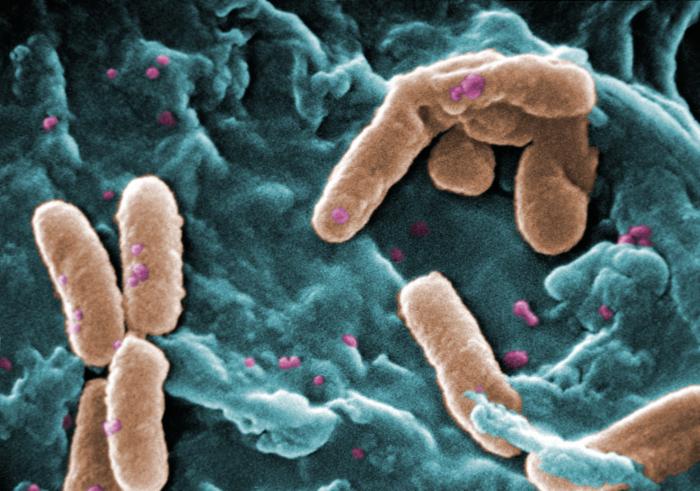Dozens of Pseudomonas aeruginosa infections that may be linked to piercing aftercare saline spray has prompted a warning from Public Health England (PHE) this past week. Health officials are warning people who have recently had body piercings.

The product, linked to cases of serious infection, has been provided by piercing studios in many parts of the country. It is a 100ml bottled aftercare saline spray and is manufactured by Lion Care Products Ltd.
However, there is no consistent brand or label being used on the product. Some labels, using only black and white lettering, will have the manufacturer’s trading name, Body Art Supplies, or may carry the Lion Care name; other studios’ labels will use neither, but possibly just their own studio name or brand on the label. If unsure, people should stop using the spray immediately and return it to their local studio.
The spray may be linked to 26 cases of a severe infection, Pseudomonas aeruginosa, across England. Investigations are ongoing and PHE continue to monitor for further cases.
To date all have been ear infections, with the majority of cases occurring in the East Midlands and South East of England. However, the product is known to have been distributed widely across England therefore more cases are likely. The product has also been distributed in Scotland but to a much lesser extent. The cases have occurred in people where piercings were undertaken between mid-July and late August 2016. However, there may be other more recent cases which have not yet been reported.
PHE advice on aftercare following body piercings is to follow the guidelines provided by the Chartered Institute of Environmental Health.
Dr Richard Puleston, Consultant at PHE said:
Infection is not uncommon following piercings, but the particular type of bacteria linked to this outbreak can cause severe infection.
It is important that people take extra care in ensuring any piercing is properly cleansed and to follow professional advice available from local environmental health teams. If people are concerned about possible infection they are strongly advised to seek medical attention urgently.
What is Pseudomonas aeruginosa?
According to the Todar’s Online Textbook of Bacteriology, Pseudomonas aeruginosa is an opportunistic pathogen, meaning that it exploits some break in the host defenses to initiate an infection. In fact, Pseudomonas aeruginosa is the epitome of an opportunistic pathogen of humans. The bacterium almost never infects uncompromised tissues, yet there is hardly any tissue that it cannot infect if the tissue defenses are compromised in some manner.
It causes urinary tract infections, respiratory system infections, dermatitis, soft tissue infections, bacteremia, bone and joint infections, gastrointestinal infections and a variety of systemic infections, particularly in patients with severe burns and in cancer and AIDS patients who are immunosuppressed.
Related:


One thought on “England: Cleansing spray, piercings and Pseudomonas infections”